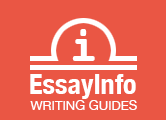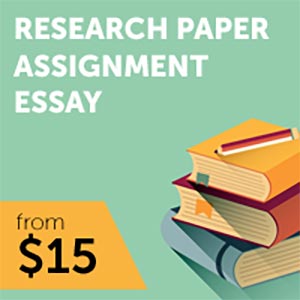Once every few months, or so it seemed, I would find myself in my college adviser's office, telling him how, really, it would make so much more sense for me to be an English major than to stay in the newspaper journalism program.
It was a ridiculous notion; I was talking to the man who was the cornerstone of my journalism major. I'm not sure what I expected him to tell me. But time after time I'd have my identity crisis, spill it to him, and let him reassure me that I'd be a fine journalist, that changing majors didn't really make sense, and didn't I want a better shot at a regular paycheck after graduation than those silly English majors were going to have?
I can't be sure he ever brought income stability into the discussion; that was always my own paranoia and the factor that led me away from English and into journalism to start with. But I do remember that every time my faith in journalism as a profession faltered, he was there to catch me and gently guide me back on the right path. He never pressured me, was never dismissive of my concerns. He always believed in me, and made me believe in myself even when that seemed like an impossible concept.
I came from a high school journalism background, so I knew a bit about how to put together a news story before I enrolled in college. But in my adviser's classroom, where I took all of my news writing courses and studied a few other media topics as well, I learned the reasons behind the rules, and the importance of ethical deliberation.
I learned about the wall between activism and proper journalism, a discussion in which my adviser, my mentor, used the example of a student many years before me who had participated in a gay civil rights event at the Iowa Capitol while she was an intern for the Des Moines Register, and was subsequently disciplined by the newspaper. When I became an intern for the Register later and while I was a writer and then an editor for the campus newspaper before that, I knew I had to squash any urges I had to speak out against the indignities of being gay in a gay-hostile world.
That was mostly okay with me, since I was still teetering in the doorway of the closet. It gave me a convenient excuse to stay quiet, and later helped me shape a decade-long career in non-activist gay journalism that I wouldn't change for anything in the world.
I read this week that my adviser, my mentor, the man who taught me how to love journalism even when I had second and third and fourth thoughts about my chosen path, is retiring after a long, successful career. I don't have enrollment statistics at my fingertips, but he had to have influenced tens of thousands of lives during his career. I don't know of anyone who took a class from him during his three decades of teaching who did not emerge a better person with a profound respect for the field of journalism and for the man who stood at the front of the classroom and delivered powerful lessons in a gentle tone.
I first heard of this man when I was signing up for classes before my first year at Drake University; someone made casual mention of the name "Bob Woodward" and I about had a heart attack. I wasn't much of a journalism scholar at that time, but I had heard of Bob Woodward. My mind raced: He was the guy who brought down Richard Nixon, man! He's a Pulitzer winner, and I'll be able to take classes from him! Excellent.
As it turned out, there are at least two Bob Woodwards in the journalism world, but I would quickly discover that contributions to the field of journalism don't peak at the Pulitzer Prize. "My" Bob Woodward shaped lives, careers, minds - every single day. He taught with his whole heart, and he moved us - every single day.
When my class was graduating, we were so smitten with our guru that it wasn't enough to leave with a heartfelt "hey, thanks." The pinnacle of our tribute to him was an early-morning caravan by all 12-or-so of us to the nearby town of Woodward, Iowa, which boasted a welcome sign that said, "You'll like Woodward - we do!" We posed for a photo in front of that sign and delivered it to him that day. Last I knew it was hanging in his office, but I haven't been back to visit in some time.
The lessons I learned about journalism from Professor Woodward - right down to the cool newsroom way to answer your phone, last name only and somewhat brusquely: "Woodward." - were irreplaceable, to be certain. But I'm as privileged to have been able to learn from him certain lessons about humanity.
When my mother was back home finishing her associate's degree work at a two-year college during my junior year, she asked if I would be able to attend her graduation. She was, rightfully, so proud of the work she had done, and I was proud of her, too. But her school year ended just before mine did, and I had a paper due for one of my advanced news writing classes, taught by Professor Woodward. I told her I didn't think I could make it home to see her graduate.
She was fiercely disappointed, so I mentioned it to Woodward, who didn't miss a beat. "You can have an extension on your paper," he said. "Go home and see your mother graduate."
I made the trip, and my mom still lights up when I mention his name.
The following year, my schoolwork started to suffer as I was grappling with the inevitable conclusion that I was a lesbian and that I would eventually have to start telling people about it. I told a few friends, and in one of those early moves that felt so risky at the time, I found myself in Woodward's office again. This time, I wasn't there to torture him with another conversation about whether I should become an English major; I was not far from graduation at that point.
He listened to me, and I'm sure he did what he could to accommodate me in the class I was taking from him that semester, without bending too far. As always, he gave just the right amount. In this case, it was the perfect combination of personal support and academic rigor. In life, as in the classroom, he was the quintessential journalist: Objective, but human. Compassionate, but fair.
Future generations of students at Drake University will miss out, but so many of Professor Woodward's former students have gone on to shape others' lives in our own ways. His lessons, about journalism and about life, will continue to be taught.
Kristina Campbell

